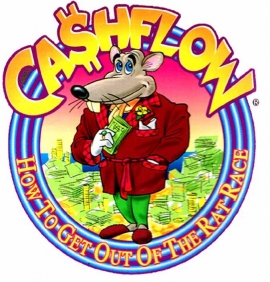Many people buy timeshares believing they are a good investment. In fact, they are the worst possible real estate investment.


Irvine Home Address … 74 LINHAVEN Irvine, CA 92602
Resale Home Price …… $749,000

So don't go away
Say what you say
Say that you'll stay
Forever and a day
In the time of my life
Cos I need more time
Oasis — Don't Go Away
Timeshare or fractional ownership has been around since the 60s, but is was during the 90s this industry really took off. Wikipedia defines Timeshare as follows:
A timeshare is a form of ownership or right to the use of a property, or the term used to describe such properties. These properties are typically resort condominium units, in which multiple parties hold rights to use the property, and each sharer is allotted a period of time (typically one week, and almost always the same time every year) in which they may use the property. Units may be on a part-ownership or lease/”right to use” basis, in which the sharer holds no claim to ownership of the property.
Timeshares give people the opportunity to use property like a hotel occupant while retaining rights of ownership — a right many believe always brings rapid appreciation. Timeshares do not go up in value.
Time-share owners are struggling to sell
Many are looking to sell their time shares amid the still-ailing economy and as the first generation of owners are nearing retirement. Some find their properties are worth pennies on the dollar.
By Jennifer Bjorhus — March 7, 2011 
Time shares are tough to sell, even in the best of times. But now the shared vacation properties and their hefty annual fees have become nearly impossible to unload and are breeding a horde of scam artists preying on eager sellers.
Nearly 8 million people — about 7% of U.S. households — own a time share, a vacation property owned by many people who take turns using it.
When I was out of high school and out of the house, my parents bought a timeshare like many Americans did. They didn't go very often, and they got tired of paying the fees, so they sold it for a loss. They were glad to be rid of it.
My parents enjoyed their stays at the resort where they got their timeshare, but the cost versus the benefit wasn't in their favor over the long term. This is the experience of most timeshare owners.

The slow economic recovery, and the fact that the first generation to buy time shares 35 years ago has been retiring, means many people are looking to sell. Craigslist, EBay and specialized listing service Redweek are chock-full of offerings.
But how much they're worth is a different issue. One Florida listing service estimates that most time shares are selling for no more than 10% of the original price. Some owners are lucky to get pennies on the dollar.
I wonder how many of those people kept up the payments on the timeshare while they defaulted on other loans. Why not? If they aren't making a house payment, they will have the money to go enjoy their timeshare. The timeshare operators won't let the “owners” stay if they're in default. It's hard to squat in a timeshare.
“We've never seen the resale market where it is now,” said Brian Rogers of the Timeshare Users Group, a consumer advocacy group in Jacksonville, Fla., that runs the listing service. Most owners “huff away mad” when told their time share has depreciated like a Yugo, he said.
Then there are the scams.
Resale scammers feeding on desperation have run so rampant that the Better Business Bureau last month named time-share resale swindles one of the top rip-offs of 2010.
One such scam goes like this: Someone tells you they have a buyer lined up and to just pay a flat fee. In another, some company says it will take your unwanted time share off your hands and sell it for an upfront fee that can be thousands of dollars. Many like to advertise by postcard.
Florida has launched a statewide crackdown on time-share resale fraud. Its attorney general's office is investigating at least a dozen companies.
Even the top industry group, the American Resort Development Assn. in Washington, has issued five consumer advisories on resale scams in the last six months.
“In a down market they come out of the woodwork,” Chief Executive Howard Nusbaum said.
Desperation will always breed exploitation. For someone selling one of these through a shady service, what did they expect would happen? After paying an up-front fee that was probably half the value of the asset — assuming it has any real value — did the timeshare seller really believe this seller was going to obtain a price far enough above the open market to warrant the fee? Any service you have to pay for up front is probably a scam. Remember the loan mod shops the California Bar had to crack down on?
Time-share sales plunged 35% to $6.3 billion in 2009, the latest year for which data are available, according to the resort development group. Sales have dropped 40% from the 2007 peak.
Owners continue to fall behind on time-share loans, although overall default rates are down from their peak in January 2010, when 1 in 10 time-share owners was in default, according to Fitch Ratings, which tracks securitized time-share loans that are bundled up and resold to investors. The annualized default rate was 8.51% in December.
Personally, i am shocked it is that low. Perhaps timeshare owners more than appreciation loanowners are willing to hang on because the timeshare was always primarily a consumptive use. Any resale value was a bonus. Plus, those borrowers weren't using Option ARMs; although, I doubt timeshare loans were underwritten to tight standards either.
Nusbaum blames the current trouble on the recession and credit freeze, as well as the demographics of retiring baby boomers. Not only have cash-strapped consumers cut back on luxuries, but resort developers have found it harder to line up the credit to offer consumers. Most new time shares are sold directly by resort developers such as Hilton Hotels Corp., Marriott International Inc., Wyndham Hotels & Resorts and Starwood Hotels & Resorts Worldwide Inc., which provide their own financing.
There are just not as many consumer protections in the secondary market, where time shares get resold, he said. “We're kind of where the used car industry was in 1962.“

Some desperate owners try to hand time shares back to the resort developer under a so-called quit claim deed. But resorts won't take them unless they think they can resell the property, experts say.
Not all time shares are equal. The best — say a Disney resort — hold their value better than the rest. “If you bought a converted motel room in 1982 in Gatlinburg, Tenn., for the first week of December … I don't think it has a whole lot of economic life,” Nusbaum said.
LOL! This guy is hilarious. 
People have to give up thinking that time shares are a financial or real estate investment, he added. It's a lifestyle investment, and its real value is the use owners get out of it.
For the last nearly two years, Shevy has worked with clients who came through the IHB. In my conversations and in his, we have shown people the cost of the purchase they're making and made no illusions about the bleak potential for appreciation and likelihood of continued price decline.
Most clients chose to purchase anyway. But rather than justifying an emotional decision with delusions of appreciation and HELOC riches, these buyers know they are paying a price, a consumptive price to the degree they were paying over rental parity. And that's okay as long as they know that going in.
People are smart and generally rational when they want to be. Buying can still be the right decision, it just isn't buying your own personal ATM machine. It's a shelter that provides a forced savings through amortization and a hedge against inflation.
But Bernie Wiklund hasn't been to his Cape Cod time share in nearly seven years. The retired engineer who lives in Ramsey, Minn., is working as a security guard to make ends meet and can't afford to fly out to Cape Cod or fork out $1,000 a year in fees.
He's advertised his two-week time share on Craigslist for nearly six years and marked it down to $5,000, a fraction of the more than $14,000 he paid in the 1980s. He's gotten responses, but only from people trying to sell the time share for him — for a fee.
“I'd like to retire,” he said. “I'm 72.”
This guy's retirement wealth is tied up in a timeshare? I hope he has other investments.
.jpg)
Kim Holbrook knows the feeling. The 56-year-old Brooklyn Park, Minn., resident has been trying for six years to sell the four time shares she and her husband bought years ago when they lived in the South and the resorts were quick getaways.
Now the children are grown, and she and her husband are spending more than $2,000 a year in annual fees on properties that they don't use like they used to. She can exchange some of the time shares for stays at resorts in different places, she said, but there are fees for that too.
Her advice for first-time buyers: Don't. “There isn't a market. You can't resell,” Holbrook said. “Everything I've seen … it's for pennies on the dollar.”
I have a news flash for the Holbrooks: they should take the pennies on the dollar and be happy they didn't have to pay someone to take those losers off their hands.
That's great news for buyers, of course. Mike Spillane, 67, picked up his eighth time share weeks ago: a one-week stay in a four-bedroom, four-bath unit in historic Williamsburg, Va. It's a “gold crown-rated” unit, referring to a time-share exchange system's top rating, that would cost as much as $30,000 if he bought it directly from a resort developer.
Spillane, who co-owns a small manufacturing company, often uses his time shares to exchange for stays at other resorts. He gives one week each year as a perk to employees and can absorb the $5,000 to $6,000 a year spent in maintenance fees.
“We know if the market doesn't fully recover that we're not going to get a lot of money for some of them,” he said. “But we've gotten use out of them for many years.”
Bjorhus writes for the (Minneapolis) Star Tribune/McClatchy.
Timeshares make fortunes for successful developers, and they create financial nightmares for most buyers.
I'll let you in on some timeshare industry secrets. But first some background.
Back in 2000, I worked on a project called Mystic Dunes for a timeshare developer Tempus Resorts.

As part of the project, I was given a behind-the-scenes tour of their sales operation. These guys set the standard for high-pressure sales techniques that worked. I found their tactics appalling but fascinating in a train-wreck sort of way.
Having previously worked for years with homebuilders, I have seen sales with urgency, but these timeshare sales guys won't take no for an answer. And that's a big part of their model for success. Over the course of dealing with thousands of leads in their controlled sales environment, they have encountered every objection imaginable, and they have developed detailed scripts they memorize and regurgitate on command.
Success in timeshare sales is much like that of interrogators. Police interrogators try to induce people to confess. One successful method is to confine the defendant in a room for hours on end and question them over and over again until they break under the pressure. Timeshare sales is the same. 
In timeshare sales, one technique is to show people around the resort in large groups with salespeople assigned to each family, couple or individual to politely badger them. These people are herded into an auditorium with small round tables where the salespeople move in for the close.
Some in the group want to buy and eagerly sign up. When these first few buy, they ring a bell and loudly celebrate. This tells the herd purchasing is okay because others have bought. Very few people have the courage to screw up on their own, but as the housing bubble showed, they will go over the cliff together as long as they are reinforced for their foolishness by the people they see. Once a few people buy, momentum builds, and herd dynamics prompts many to buy when they ordinarily wouldn't.
The people who run these operations are master salesmen who know every trick to quickly close the deal. It's an extremely profitable business for the good operators. For those who don't know how to operate one of these unique sales presentations, attempting to go timeshare would be a disaster.
The timeshare business is profitable because they can sell a $200,000 condo 50 times at an average price of $20,000 a week. If you ever go on one of these presentations, do the math for yourself. It's astounding how much they make, but it's also astounding how much they have to pay out to make it.
So when a timeshare owner pays $20,000 for their week in a condo, they are really buying a 1/50 interest in a $200,000 property. Their $20,000 purchase is really only worth $4,000 at best. So back to the main point of the article of the day, timeshares are the worst real estate investment because they are extremely overpriced when you buy them, and the ongoing fees will make them a liability that after a time outweighs the consumptive value.
I'll just stay at a hotel.

This property was first featured on May 25, 2010 when it was for sale as a short for $710,000. Apparently the negotiations with the borrower broke down because the bank foreclosed on 12/13/2010 and now after what looks like a first-rate renovation by the bank, they are offering it for sale.
The following is updated from the previous post, The California Economy is Dependent Upon Ponzi Borrowers:
Today's featured Ponzi borrower
- Today's featured property was purchased on 11/13/1999 for $485,000. My records say the owners used a $502,000 first mortgage, but that is unlikely. It is more likely they used a $402,000 first mortgage and a $83,000 down payment.
- On 5/13/2003 they opened a HELOC for $63,400
- On 1/26/2004 they got a HELOC for $100,000.
- On 2/1/2005 they refinanced with a $634,500 Option ARM with a 1% teaser rate.
- On 3/23/2005 they obtained a $80,000 HELOC.
- On 8/10/2005 they got a HELOC for $100,000.
-
On 11/3/2006 they refinanced with a $688,000 first mortgage and a $85,000 HELOC from Wells Fargo. Since Wells owns both mortgages, they are in no hurry to foreclose on this owner and wipe out their HELOC. Look for this property to be in the amend-pretend-extend dance forever.

- Total property debt is $773,000.
- Total mortgage equity withdrawal is $484,227 plus whatever down payment they put into the property.
- Total squatting was at least 11 months.
Foreclosure Record
Recording Date: 04/15/2010
Document Type: Notice of Default
This couple spent almost half a million dollars in a four-year span. That is a one-family stimulus plan. If they were an isolated case, it may be a titillating story, but I have profiled hundreds of these here in Irvine. It is a widespread practice.


Irvine Home Address … 74 LINHAVEN Irvine, CA 92602 ![]()
Resale Home Price … $749,000
Home Purchase Price … $658,600
Home Purchase Date …. 12/13/10
Net Gain (Loss) ………. $45,460
Percent Change ………. 6.9%
Annual Appreciation … 52.6%
Cost of Ownership
————————————————-
$749,000 ………. Asking Price
$149,800 ………. 20% Down Conventional
4.85% …………… Mortgage Interest Rate
$599,200 ………. 30-Year Mortgage
$152,450 ………. Income Requirement
$3,162 ………. Monthly Mortgage Payment
$649 ………. Property Tax
$114 ………. Special Taxes and Levies (Mello Roos)
$125 ………. Homeowners Insurance
$0 ………. Homeowners Association Fees
============================================ 
$4,050 ………. Monthly Cash Outlays
-$768 ………. Tax Savings (% of Interest and Property Tax)
-$740 ………. Equity Hidden in Payment
$279 ………. Lost Income to Down Payment (net of taxes)
$94 ………. Maintenance and Replacement Reserves
============================================
$2,914 ………. Monthly Cost of Ownership
Cash Acquisition Demands
——————————————————————————
$7,490 ………. Furnishing and Move In @1%
$7,490 ………. Closing Costs @1%
$5,992 ………… Interest Points @1% of Loan
$149,800 ………. Down Payment
============================================
$170,772 ………. Total Cash Costs
$44,600 ………… Emergency Cash Reserves
============================================
$215,372 ………. Total Savings Needed
Property Details for 74 LINHAVEN Irvine, CA 92602
—————————————————————————— 
Beds: 4
Baths: 3
Sq. Ft.: 2478
$302/SF
Lot Size: 6,937 Sq. Ft.
Property Type: Residential, Single Family
Style: Two Level, Mediterranean
Year Built: 1999
Community: West Irvine
County: Orange
MLS#: S648733
Source: SoCalMLS
Status: ActiveThis listing is for sale and the sellers are accepting offers.
On Redfin: 10 days
——————————————————————————
Bank Owned!!! Highly upgraded home in West Irvine. Great curb appeal. Professionally landscaped. Extra long driveway for additional parking. Gourmet kitchen with center island. Granite counters and backsplash. Plantation shutters throughout. Hardwood flooring throughout downstairs. Built-in entertainment center in family room. Ceiling fans throughout. This home is well maintained.
Professional landscaping!
http://www.crackthecode.us/images/professional_landscaping.jpg
When my husband and I got married 24 years ago, we bought a used Toyota truck for him, and paid sticker. We were young, broke and naive. The salesguy later told my husband that we were a “home-run”. We paid sticker, used their financing and bought some extra service. The truth was, we were afraid to negotiate. Looking back, we probably overspent by $1K total.
We started using used car lots and timeshare promotions to practice negotiations. We’d overanalyze their numbers, and walk away with our free TV, dinner at a restaurant, movie passes etc…It got easier and easier. The maintenance fees always cracked me up, because the salesperson would brush those aside quickly and focus on the fact that we were throwing away our money paying for a hotel room. I loved it when they’d pass us on to their premier arm-twister.
Time shares are for a locked in vacation price. If you’re looking at it for an investment, you will be out-of-luck and the vacation value (good feelings) will be deminished.
I’ve done better just paying for a discounted hotel room or rooms with the kids and in-laws. Being locked into a location and time are not very good for my wife and me.
I like real ownership and not a pseudo-ownship or perpetual pre-renting of timeshares. The reoccuring fees were almost the cost of renting some hotel rooms or condos. the real benefit is being forced to set aside time to take the vacation.
I remember one of the few real vacations my wife and I took, was 4 nights in Cancun at one of the nicer resorts. As soon as we got there, the time share people were bugging us to sit through their presentation. They left notes in our room, voice mails, and tried to accost us when we walked by their table. But we refused to waste our precious vacation time talking to those scumbags. By the 3rd day, they left us alone. This was back in ’99, when I was only 27. They probably saw us as a prime target, but even back then we knew better. We met another couple by the pool, who were bragging about their newly purchased time share. We secretly felt sorry for them. Having spend the last decade in purchasing, I’ve become even more bitter and jaded. It’s a jungle out there.
I have always wished that I could have been the person who conceived the time share concept. I remember when this was a new wrinkle, back in the seventies, and an older relative and older friend bought. I remember calculating at the time that the value of the little vacation cottages in question was about one quarter the combined prices of all the shares.
I’m surprised time shares have lasted this long, because the word’s been out for a long time that you almost never recover your purchase price. Additionally, you must pay the maintenance and the cost of renovating the place every three years to keep it stylish and in good condition.
Today’s listing courtesy of the McMonigle Group.
What happened to the luxury, one of a kind, trophy property only listings?
This is bad for the brand.
Lower tier West Irvine associated with Pelican Hill, Spyglass, Crystal Cove and Emerald Bay.
It does make me wonder if your observation about his financial health a couple of days ago is correct. Why would he start taking listings like this that cheapen his brand?
Notice the listing agent isn’t John McMonigle…
If you look at their listings, his office does sub-$1mm homes… John doesn’t but his office does. They have been doing this for years and is not new.
Also, notice it is an REO. What this really tells you is that Coldwell Banker (which the McMonigle group is a franchise of) is kicking the good, high end REOs to his group to sell (basically a free listing) as a nice bonus. CB has offices in Irvine and Tustin much closer to this property.
I am not trying to defend him since I have no relationship with the guy and don’t know his current situation… I just wonder why you guys are insisting he is broke… as if him being broke has an effect on your or anyones life. It is a strange thing to spend time on.
We spend time on it because it was a news story in the OC Register. I really couldn’t care less what his financial circumstances are. However, the story was interesting because the perception created by the story is that he is in financial trouble, and the public statements he is making are the opposite.
It doesn’t matter much what happens to Charlie Sheen either, but the train wreck is fun to watch.
I think that Billy is correct, the McMonigle office has been taking all kinds of listings, high end and lower end for years. I’ve seen sub 300k listings from the McMongile Group. That said, I believe that he separated from Coldwell Banker almost a year ago and is completely independent. More and more agents are realizing that they do not need a big name broker; people recognize them and work with them not the name.
I know that there’s speculation that he’s broke, I know that some of his developments have not done well. However, I also believe that a lot of that money is investor money, which still can’t be good for him. On a production basis McMonigle is still doing extremely well from what I’ve seen and read.
Regardless of one likes or dislikes McMongile or think he’s broker or not, he’s a success story and unlike many of the agents that people complain about runs real estate like a profession with solid marketing and systems for high end properties. No doubt the ultra high end is his niche and some of his developments that did not pan out will hurt his relationship with some investors.
Larry makes a good point, regardless if it’s right or not people like watching train wrecks. I personally feel bad when people rise out of virtually nothing and let greed, addiction, etc. overcome and create their demise. (Not that this is true of McMonigle, I have no idea)
I subscribe to an investment newsletter, “dividend.com” run by former Wall Street trader Paul Rubillo.
Today’s e-letter in part focused on saving property taxes which I would like to share with IR and his wonderful staff, George, Shevy and with the IHB readers.
Of course all credit to http://www.dividend.com
Please stop by and have a look at this service 🙂
[Begin Quote]
“Speaking of real estate, I wanted to pass along a few great sites I found regarding getting your property taxes possibly lowered. The April edition of Kiplinger magazine highlighted three websites you can check out if you believe you are paying too much in property taxes. They are:
ValueAppeal.com. For $99, you’ll find out whether you’re paying too much and how much you could save by appealing. You get a property valuation based on the same data your county uses for its assessments, a list of ten comparable properties, a customized appeal report to mail to your appeals board and access to a tool that analyzes the property assessor’s comparable properties to demonstrate that they unfairly support a higher value for your home.
EasyTaxFix.com. For $79.95, you get three comparable properties (with the option to select other ones if you think they better reflect your property’s value), a completed appeal form, valuation document and instructions on how to proceed.
LowerMyAssessment.com. You can see your property’s assessed value and market value for free. For $39.95, the basic package provides comparable sales data. For $79.95, the deluxe package includes completed appeals forms in addition to sales data (it’s only available in 11 states). For $299.95, the premier package includes an appraisal by a licensed appraiser, along with appeals forms and comparable properties.
Just be aware that not all of the rural areas may be covered and in some cases, certain states may not be covered – depending on which service you consider researching. Some of these sites also offer a money back guarantee if your appeal is rejected.” [End Quote]
~Misstrial
The Timeshare Monster almost got us years ago at our honeymoon in Maui.
Recently, we went to one but we didn’t think about it as a real estate investment. I actually think that’s the new sales approach, they compared it to the costs of what we spend on vacations. It sort of made sense from a consumptive perspective (“for the children”) but in the end, we didn’t do it. Surprisingly, it was cheaper than I thought, something like $8000 total for X units of time that could be used at many other resorts and hotels. They even had “rollover units”… hehe.
Hmm… maybe I should start an Irvine Home Timeshare for the FCBs. You only have to buy a week in Irvine to get you the whole school district for the year.
I have not been hard sell by many Timeshares saleman. They don’t want to waste time one me. One was a very soft sell and said don’t think of it as a financial investment because it isn’t. He got my wife and I to sign up, but I changed my mind. He refunded my money with any hassle. I didn’t want to take the freebie, but the saleman insisted and then offer to give my family free ski lessions by himself, a ski instructor. We didn’t take the free ski lessons. The saleman was an ex-Intel jr. VP, who decided that after getting cancer, life in the electronic buz. was too hard on himself and family. Timeshare sales took less time and he had more time with family.
IR pointed out the profits from developing timeshares. There also plenty of money in managing timeshares. The reoccuring fees are about the cost of a high end hotel. The hotels have extra expenses to pay for the property/mortgage and the investors/shareholders. These expenses are absent in the timeshare for the “owners” have already paid and not expecting a ROI from the timeshare mgt, but from a “new investor.”
I love times shares. Absoulutly love them. Save money on coffee and breakfast. We have two small kids and a one bed with living room and kitchen is perfect for us so far. The Westin in Maui is our favorite. My son loves the pirate ship.
However I would never, ever never ever ever ever buy one. Redweek is awesome. You can get time shares for less than the matinence fee. And another site lets you do getaways that are less than $400. I stayed in az in 1200 sq. feet for less than $400. Now i have family there so staying a week is no biggie.
With the massive depreciation, are timeshares on the secondary market a bad value? Obviously buying them directly from the developer is stoo-hoo-pid.
But as with any other investment, is it possible that timeshares are being undervalued? Are they worth it if you buy them for pennies on the dollar?
Just curious. I haven’t crunched the numbers but wondered if anyone else already had.
I wouldn’t mind buying vacations cheaply.